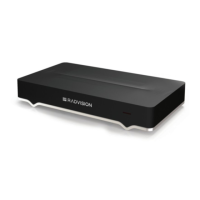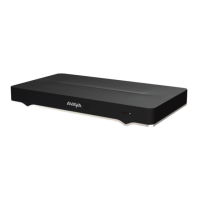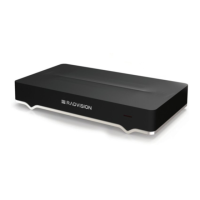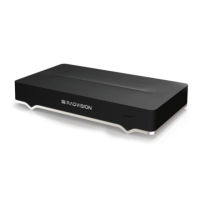compatible with both protocols. As a protocol, it uses fewer resources than
H.323.
SIP Registrar See Registrar on page 210.
SIP Server A SIP server is a network device communicating via the SIP protocol.
SIP URI See URI on page 214.
Slider See Content Slider on page 202.
SNMP Simple Network Management Protocol (SNMP) is a protocol used to
monitor network devices by sending messages and alerts to their registered
SNMP server.
Software endpoint A software endpoint turns a computer or portable device into a
videoconferencing endpoint via a software application only. It uses the
system's camera and microphone to send image and sound to the other
participants, and displays their images on the screen. For example,
Scopia
®
Desktop Client or Scopia
®
Mobile.
SQCIF
SQCIF defines a video resolution of 128 x 96 pixels.
SRTP Secure Real-time Transport Protocol (SRTP) adds security to the standard
RTP protocol, which is used to send media (video and audio) between
devices in SIP calls. It offers security with encryption, authentication and
message integrity. The encryption uses a symmetric key generated at the
start of the call, and being symmetric, the same key locks and unlocks the
data. So to secure transmission of the symmetric key, it is sent safely
during call setup using TLS.
SSO
See Single Sign On on page 211.
Standard Definition See SD on page 211.
Streaming Streaming is a method to send live or recorded videoconferences in one
direction to viewers. Recipients can only view the content; they cannot
participate with a microphone or camera to communicate back to the
meeting. There are two types of streaming supported in Scopia
®
Solution:
unicast which sends a separate stream to each viewer, and multicast which
sends one stream to a range of viewers.
STUN
A STUN server enables you to directly dial an endpoint behind a NAT or
firewall by giving that computer’s public internet address.
SVC SVC extends the H.264 codec standard to dramatically increase error
resiliency and video quality without the need for higher bandwidth. It is
especially effective over networks with high packet loss (like wireless
networks) which deliver low quality video. It splits the video stream into
layers, comprising a small base layer and then additional layers on top
Glossary
212 Avaya Scopia
®
XT Series Deployment Guide April 2015
Comments? infodev@avaya.com

